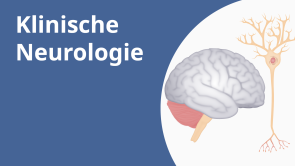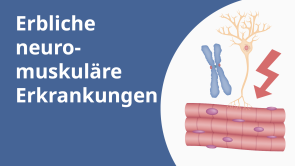Kongenitale Muskeldystrophie und kongenitale Myopathie

Über den Vortrag
Der Vortrag „Kongenitale Muskeldystrophie und kongenitale Myopathie“ von Roy Strowd, MD ist Bestandteil des Kurses „Erbliche neuromuskuläre Erkrankungen“.
Quiz zum Vortrag
In comparing congenital muscular dystrophy and congenital myopathy, which of the following statements is most accurate?
- Patients with congenital muscular dystrophy will have progressively worsening symptoms.
- Patients with congenital myopathy will have progressively worsening symptoms.
- A biopsy of congenital myopathy will show muscle necrosis.
- Patients with congenital muscular dystrophy will have static or very slowly progressive symptoms.
- Only congenital muscular dystrophy is related to a genetic error.
With respect to congenital muscular dystrophy disorders, which of the following statements is most accurate?
- Babies presenting with severe weakness, mental retardation, and seizures should be screened for congenital muscular dystrophy.
- Genetic testing is not useful in determining a congenital muscular dystrophy diagnosis.
- Facial or ocular symptoms are extremely rare in these diseases.
- All congenital muscular dystrophies are related to mutations in the same gene.
- Patients will generally improve with time.
With respect to congenital myopathy disorders, which of the following statements is most accurate?
- These conditions can be differentiated by pathological examination of histological features.
- These diseases are present at birth and continue to worsen with time.
- Muscle cell death is pathognomonic for congenital myopathy.
- These diseases have no known genetic mutation.
- Function of the living muscle cells is considered normal.
In comparing congenital muscular dystrophy and congenital myopathy, which of the following statements is most accurate?
- Treatment options do not exist for either of these diseases.
- Only congenital myopathy can be diagnosed through genetic testing.
- Only congenital muscular dystrophy disorders are static over time.
- Only congenital myopathy disorders are present at birth.
- Both of these disorders carry a worse prognosis for boys.
Diese Kurse könnten Sie interessieren
Kundenrezensionen
5,0 von 5 Sternen
| 5 Sterne |
|
5 |
| 4 Sterne |
|
0 |
| 3 Sterne |
|
0 |
| 2 Sterne |
|
0 |
| 1 Stern |
|
0 |






